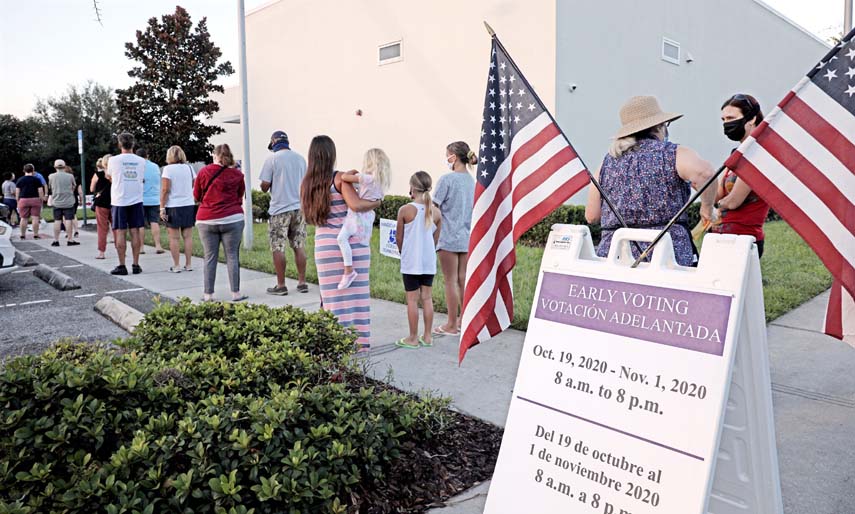
In a sense, the core of the problem can be framed in terms of polarization. As documented by social psychologist Matt Motyl (2018), the political polarization in this country since 2000 has simply been on the increase. Based on data that Motyl presented, it used to be the case that a large proportion of counties in the U.S. were pretty evenly split in terms of people who identified with the “left” versus “the right.” And this portrait was true even as recently as 2000.
Times have changed. Based on Motyl’s data, these days, a huge majority of counties in the U.S. vote overwhelmingly as either “red” or “blue.” We live in our own little bubbles. And we tend to be surrounded by others who (often strongly and unequivocally) share our political attitudes and beliefs. And we tend to be outraged and even shocked by the attitudes and beliefs that we ascribe to “the other side.” And social media only facilitates the problem (see Geher & Wedberg, 2020).
This kind of ingroup/outgroup thinking is so foundational to the human social-psychological experience (see Billig & Tafjfel, 1973), and it arguably sits at the core of so many social problems across human history.
Healing Wounds Across the Political Divide
In short, the political divide in the U.S. is enormous right now. And distrust of “the other side” is following suit. We are a wounded nation, and this fact trickles down to our day-to-day lives in so many ways.
Like most of us, I do, of course, have my own political perspectives and beliefs. I actually identify unabashedly as socialist in my own views, if you want to know. And here is another post where I describe my perspective on socialism.
But beyond our own individual political perspectives, I think it’s time to really focus on our shared humanity right now. Healing the wounds that recent U.S. politics have caused is, to my mind, foundational right now as we work collectively toward a better national and global community. One that sits on a base of respect, trust, and love. One that sits on a foundation that underscores our shared humanity.
Focusing on Our Shared Humanity
From a social psychological perspective, one way to get people from different sides to unite and collaborate on a shared future is to have people work toward superordinate goals (see Sherif, 1958). For instance, during World War II, all Americans needed to come together to stand against a common enemy in the Nazis. And even when it comes to simple tasks, such as getting kids from different cliques to see each other in a positive light, having them all work toward a superordinate goal is critical.
As someone with a keen interest in positive evolutionary psychology (see Geher & Wedberg, 2020), I am particularly interested in the effects of underscoring our shared humanity in efforts to bring people from different “sides” together. In a sense, underscoring our shared humanity is a form of having people, regardless of their particular identity, see us all as working together toward various common superordinate goals.
As I’ve stated before, at the end of the day, we all have a ticket on the same ride. As an evolutionary behavioral scientist, I see the following as a short list of ways that all humans, regardless of background, share foundational goals as we travel through life.
Across all political factions, the following tend to be true:
Our family matters dearly to us.
We appreciate the natural world.
We appreciate art, music, and stories.
We like to laugh.
We want to experience love.
We want to feel safe.
We want to be part of a community.
We want strong, meaningful friendships.
We want to trust others and we want others to trust us.
We want opportunities to pursue happiness.
We want freedom to make our own choices in life.
Bottom Line
The current political turmoil in the U.S. is far from over. The divisiveness in our nation has bubbled over in the past four years. And the current situation-a deeply divided and wounded America full of us-and-them thinking and large-scale mistrust-is not sustainable.
Ours is a nation that needs healing. Underscoring our shared humanity, across any and all political fissures is, I hope, a path toward healing. Red or blue. Religious or secular. Democrat or Republican. Liberal or leftist. At the end of the day, we’re all humans and the foundational values that we all share are strikingly similar. Let’s not forget this fact during this difficult time in our national history.

